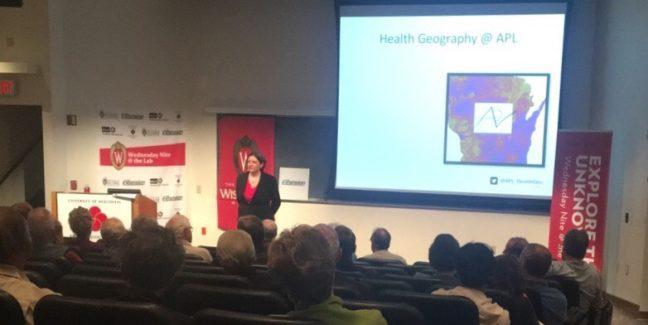As a part of the “Wednesday Nite @ the Lab” series, University of Wisconsin assistant scientist Malia Jones talked about the recent history and future trajectory of the anti-vaccination movement in the U.S.
In her lecture, Jones said despite government rules and regulations, parents are hesitant and sometimes even reluctant when it comes to vaccinating their children.
According to Jones, only 2.6 percent of parents refuse to vaccinate their children under any circumstances.
Although this number is small, it becomes much more significant in the context of an epidemic, such as the recent measles outbreak in Minnesota, which Jones said was the worst outbreak of its kind in decades.
A 1998 study conducted by Dr. Andrew Wakefield, which linked the MMR vaccine to autism and was later proven to be false, caused a “great deal of damage” to those who were already hesitant about vaccinations, Jones said.
Bill would prevent child vaccination opt-outs for personal reasons
“To be clear with everyone in this room, there is zero evidence that there is a link between MMRs and autism,” Jones said.
Wakefield’s false claim seemed to have led to just one of a “broad range” of reasons parents have to not vaccinate their children, Jones said.
Jones’s talk also focused on other groups of individuals that were likely to be non-compliers. The list included parents with religious motivations, personal beliefs and language barriers.
California has created policies in recent years to include personal belief exemptions. Similar policies are being considered in Wisconsin, Jones said, which could ultimately impact Madison.
UHS launches phone-based model for mental health consultations
In order to avoid another epidemic, adults must be properly educated on the risks and opportunities, Jones said.

















